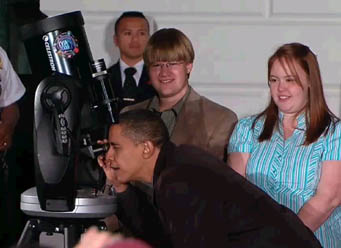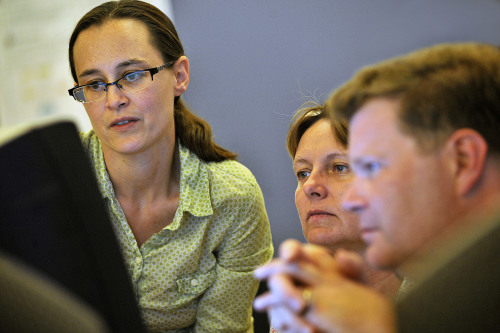|
Teacher Orientation May 25-26, 2012. WVU. Morgantown WV. Teachers will meet PSC scientists and attend Day One of the Capstone Seminar (see below).
Online Sessions TBD May 26- July 8, 2011. Gain expertise with the PSC website and pulsar data analysis through four 1-hour online classes and offline homework.
Summer Workshop for Teachers and Students. July 8-14, 2012. NRAO, Green Bank, WV. Teachers may select 1-2 student leaders to accompany them to the Observatory. We will provide training for 20 science teachers and up to 40 high school student leaders. Work alongside astronomers to learn how to reduce and analyze pulsar data! Undergraduate students will be residential assistants for the students. Teachers will live in separate quarters.
Academic Year Activities. Teachers and student leaders will introduce the PSC to their classes and complete hands-on activities. Students will then be invited to join the PSC. PSC teams will conduct original research by analyzing data from the GBT with the expectation of discovering new pulsars and characterizing changes in previously-known pulsars.
Annual PSC Capstone Seminar at WVU. May, 2013. Student Teams will present their research, hear talks by professional astronomers, tour the STEM colleges within the University and participate in fun STEM related activities at a PSC Seminar! In 2013, there may be some costs associated with Capstone.
|




